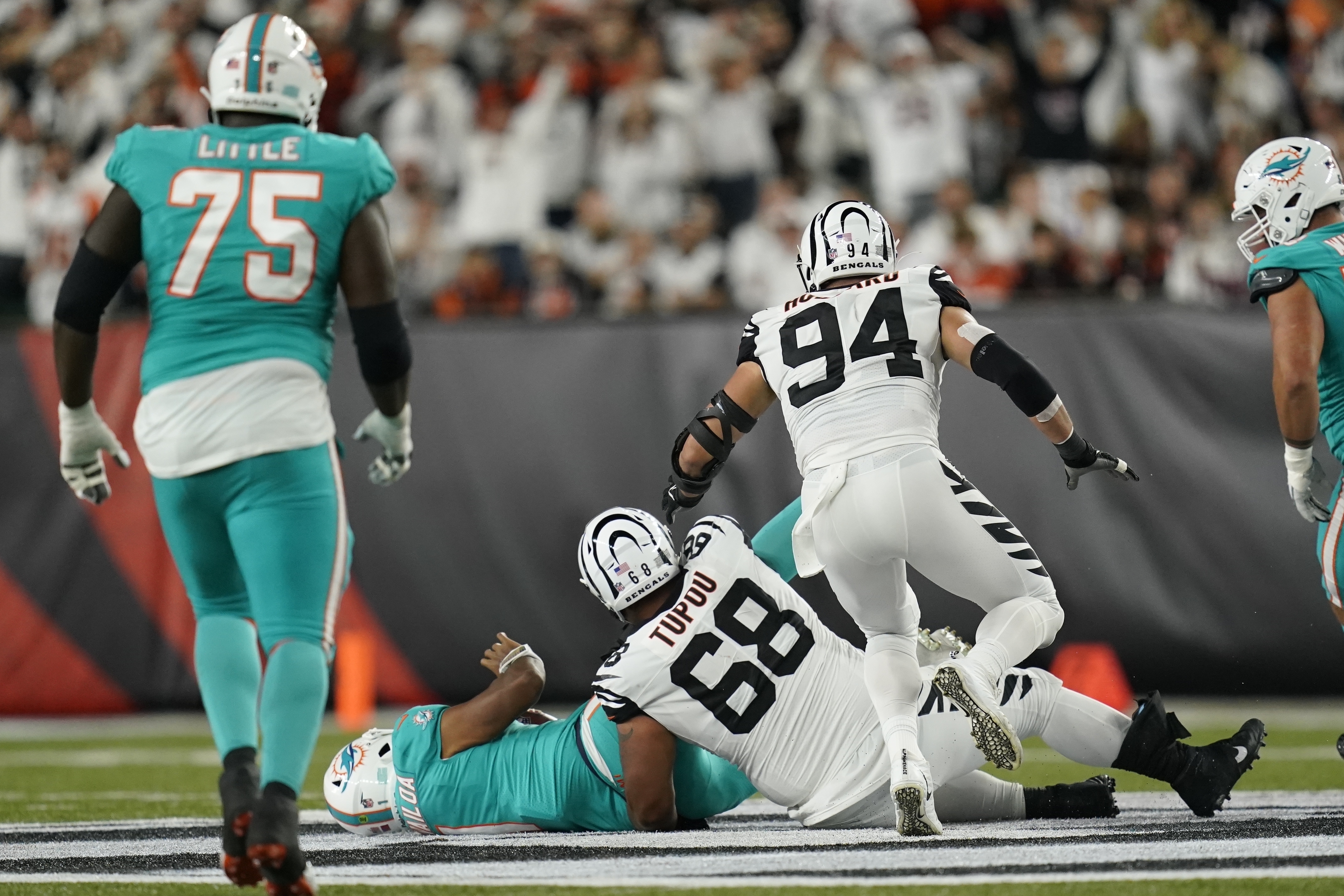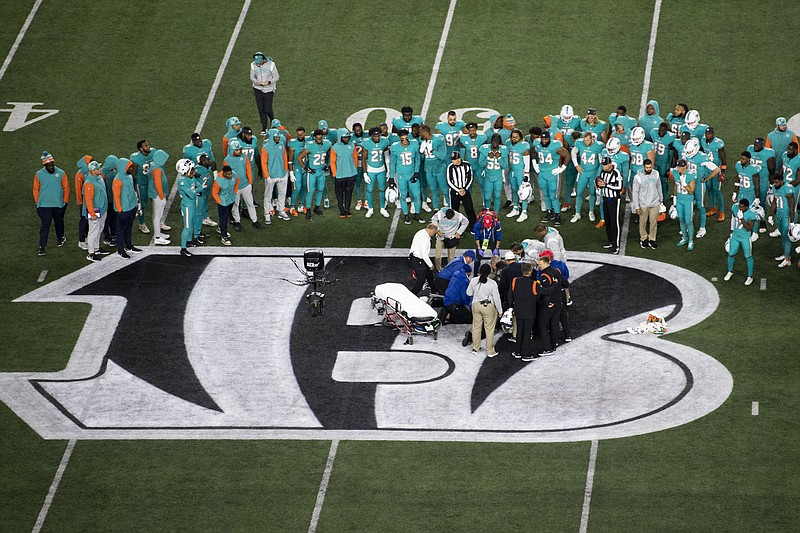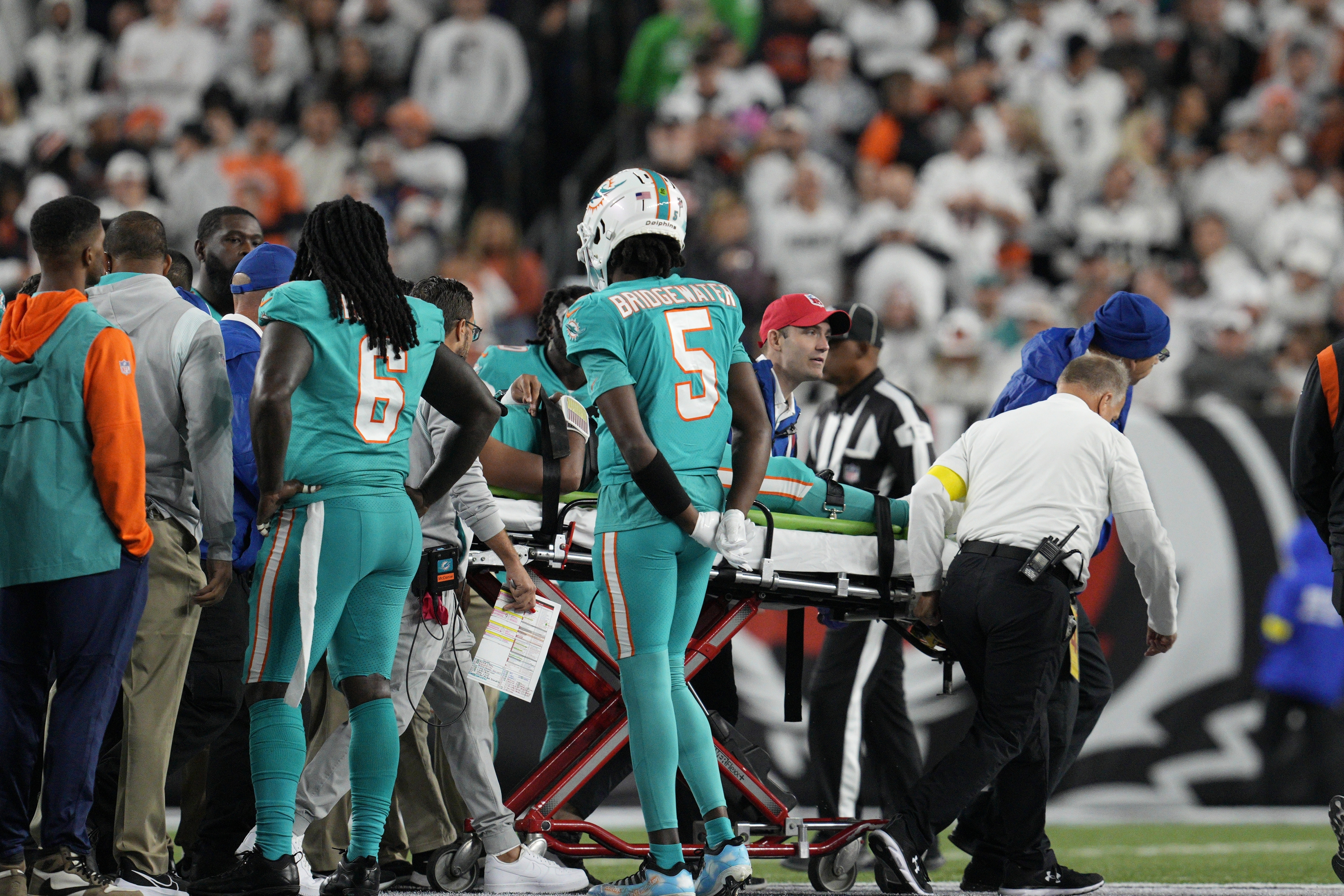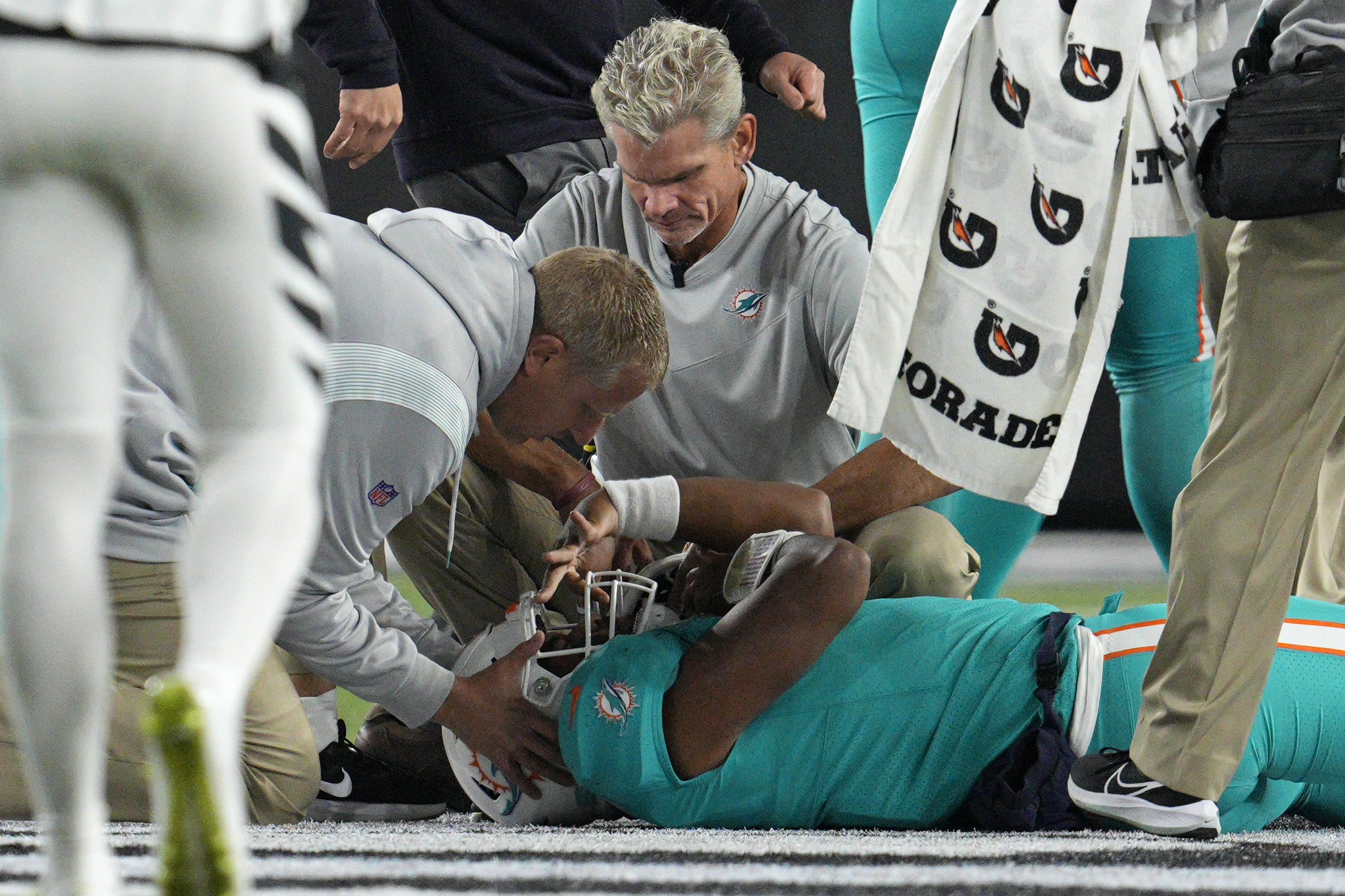The NFL's handling of concussions has evolved dramatically from the days when players were handed smelling salts on the bench and sent back into the game.
The league and the NFL Players Association have implemented extensive protocols and hired unaffiliated neurotrauma consultants (UNC) to work with team physicians at each game to diagnose concussions.
Still, football is a violent sport and injuries similar to the frightening one Miami Dolphins quarterback Tua Tagovailoa suffered Thursday night seem unavoidable unless the NFL bans tackling and turns the game into flag football like it did for the Pro Bowl.
That's not happening, and the most effective means of protecting players remains enforcing strict concussion protocols, which players, fans and others are concerned didn't happen with Tagovailoa.
It would be difficult to prevent what happened to Tagovailoa when 6-3, 340-pound Bengals defensive tackle Josh Tupou slammed him backward into the turf. The main question is why he was even playing just four days after he stumbled off the field and was unable to walk following a hit to his head during a home game against Buffalo.
Tagovailoa's hands froze up and his fingers flexed awkwardly in front of his facemask for several seconds as he laid on the turf in Cincinnati, a scary scene witnessed by millions of viewers. He remained on the ground for several minutes until he was taken away on a stretcher and sent to a hospital.
This time -- unlike Sunday when he seemed to exhibit concussion symptoms but was cleared by a team physician and UNC to return -- Tagovailoa was diagnosed with a concussion. He was released from the hospital and flew home with the team. Flying hours after suffering a concussion raised questions, but NFL chief medical officer Dr. Allen Sills said the hospital makes that decision.
Tagovailoa's quick return Sunday prompted a joint review by the NFL and NFLPA. The interview process has started and results aren't expected for at least another week. Tagovailoa and the team explained his legs were wobbly because of a back injury.
It's unknown whether there's any correlation between the two incidents. Concussions are common in the NFL, especially when a player is thrown to the ground by a man Tupou's size and his head hits the turf.
Sills said "it's impossible to know" if the injury Tagovailoa sustained Thursday was exacerbated by the hit he took Sunday.
"That's one of the factors that we want to look at," Sills said on NFL Network. "Every injury is one we want to prevent."
Chris Nowinski, a founder of the Concussion Legacy Foundation who played football at Harvard, is adamant Tagovailoa sustained a concussion against Buffalo and shouldn't have played at Cincinnati.
"Tua showed five distinct signs of concussion," Nowinski told The Associated Press. "Anybody who has any training on concussions or cares about Tua as a human is not putting him on field four days after what he showed on Sunday, so this makes it so much worse because we know that this could be career-ending or season-ending. It should be season-ending, in my opinion. And it just shows just a lack of care for him as a human being."
The league and the NFLPA instituted concussion protocols in 2011 when Colt McCoy took a helmet-to-helmet hit in a game and returned without being tested for a concussion. The protocols have been expanded since.
There are three UNCs, who are paid jointly by the NFL and NFLPA, at each game. They work in conjunction with team physicians to diagnose whether a player has a concussion. Independent certified athletic trainers (ATC spotters) sit in a booth and monitor the players on the field to have someone removed from the game if they see an impact to the head. Team trainers, coaches or physicians, teammates, game officials, sideline UNCs or booth ATCs also can initiate the protocol.
All players who undergo any concussion evaluation on game day must have a follow-up evaluation conducted the following day by a member of the medical staff. Sills said Tagovailoa was evaluated every day leading up to the game, even though he wasn't in concussion protocol.
Several players have spoken about passing protocol even when they had concussions. Andrew Whitworth, the former Rams offensive lineman, said on Amazon's broadcast he once played through a concussion during a game until a teammate noticed he wasn't right and alerted doctors.
The league has experimented with other means to mitigate head injuries. This year, offensive linemen, defensive linemen, tight ends and linebackers were required for the first time to wear Guardian Caps -- a soft-shell, padded covering on top of their helmets -- during practices from the start of training camp until the second preseason game.
The average number of concussions among those positions groups dropped from 23 over the previous three-year period to 11 this summer, the league said. Of those 11 concussions, six resulted from blows to the facemask, which didn't have added protection.
 Miami Dolphins quarterback Tua Tagovailoa (1) is sacked by Cincinnati Bengals' Josh Tupou (68) during the first half of an NFL football game, Thursday, Sept. 29, 2022, in Cincinnati. Tagovailoa suffered a second frightening injury in five days when he was carted off the field Thursday. (AP Photo/Joshua A. Bickel)
Miami Dolphins quarterback Tua Tagovailoa (1) is sacked by Cincinnati Bengals' Josh Tupou (68) during the first half of an NFL football game, Thursday, Sept. 29, 2022, in Cincinnati. Tagovailoa suffered a second frightening injury in five days when he was carted off the field Thursday. (AP Photo/Joshua A. Bickel)

